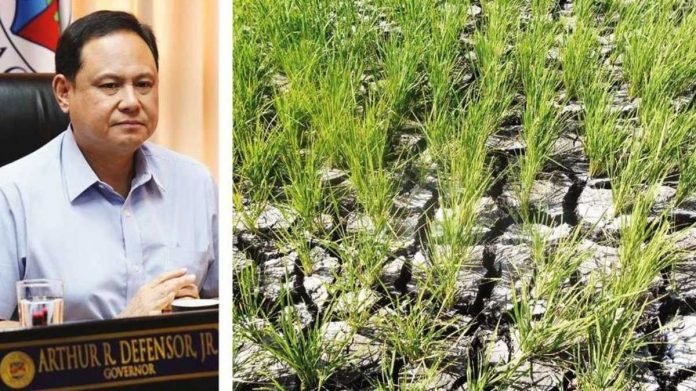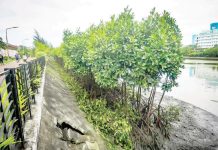
ILOILO – The El Niño phenomenon might emerge between June and July at 80 percent probability and persist until the first quarter of 2024, according to the Philippine Atmospheric, Geophysical and Astronomical Services Administration (Pagasa). Does Iloilo, the region’s top rice producer, have a contingency plan?
Gov. Arthur Defensor Jr. said he is convening the Provincial Civil Defense Cluster and the Provincial Agriculture Office (PAO).
According to Pagasa yesterday, El Niño increases the likelihood of below-normal rainfall conditions, which could have negative impacts, such as dry spells and droughts.
Defensor is wary of El Niño’s impact most especially on small-scale farmers. He said irrigation systems would be prioritized because small-scale farmers depend on them for their field’s water requirements.
Drought or dry spells may be felt towards the last quarter of 2023, according to Pagasa.
Regarding domestic water, Defensor said the provincial government will be aggressive in implementing water system programs in barangays without access to the Metro Iloilo Water District.
He is also eyeing forming a taskforce but will first maximize the Provincial Civil Defense Cluster.
Recently, Department of Interior and Local Government secretary Benhur Abalos ordered all governors, mayors, barangays, including the Bangsamoro Autonomous Region of Muslim Mindanao and regional directors to prepare for El Niño to mitigate its impact in their respective areas.
The DILG heads the new El Niño Team created by President Ferdinand Marcos Jr.
Abalos over the weekend signed department Memorandum Circular 2023-065 mandating local government units (LGUs) to prepare for the potential adverse effects of El Niño in the country.
He underscored the need for LGUs to pass ordinances in their respective areas to curb illegal connections and encourage the prudent use of water.
According to Abalos, LGUs should implement and update the existing contingency plans related to the El Niño phenomenon.
“Save vulnerable areas through appropriate water management and other related interventions by conducting cloud seeding operations, shifting to other crops, provision of pumps and engine sets, fuel subsidy, provision of short gestation, drought-tolerant seed varieties, planting materials, fertilizers, soil ameliorants, flower inducers, mulching film, pesticides, herbicides, drugs and biologics,” he said in his memorandum order.
The DILG chief said water concessionaires and utilities should be allowed to conduct emergency repairs of leaks even without a prior necessary excavation permit, provided they eventually secure the authorization.
He also tasked the Bureau of Fire Protection to refrain from unnecessarily drawing water from fire hydrants. (With a report from philstar.com)/PN





